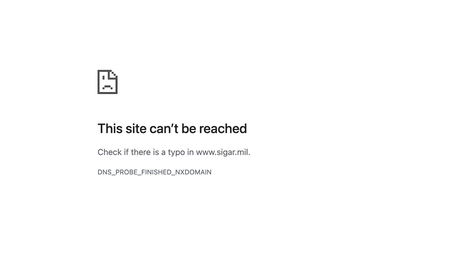Colombian President Gustavo Petro is asking President Joe Biden to declassify U.S. records on one of Colombia’s most infamous human rights cases — its army’s 1985 siege of the Colombian Supreme Court.
Biden should agree to start the declassification process immediately. The U.S. has the unique ability to perform declassification diplomacy because of the quality of its archives, and it should engage in it regularly and proactively.
There is no danger in releasing these 40-year-old records, and they would help bring closure to families still searching for answers about what happened to their loved ones.
‘A volcanic disaster’
On Nov. 6, 1985, members of Colombia’s M-19 guerrilla group occupied the country’s Supreme Court building in Bogotá. (Petro was a member of M-19 at the time, but was detained before the assault.)
The CIA called M-19’s operation a “publicity-generating” stunt, but then-Colombian President Belisario Betancur was concerned that showing leniency would anger military leaders, and ordered a ferocious, disproportionate response.
The Colombian army launched a 27-hour siege of the building that killed 11 justices and over 100 civilians. Eleven people working in the building still remain unaccounted for, and are believed to have been tortured and killed by Colombian army intelligence for being collaborators. The CIA deemed the military’s handling of the event a “volcanic disaster.”
To date, accountability and answers about what happened to those disappeared by the military have proved scarce.
Colombia, whose records are not nearly as complete as those of the United States, has repeatedly asked for help finding answers. The Colombian truth commission wrote a letter to Biden in 2021 stating “Colombian archives are far from complete,” and “the extraordinary care taken by U.S. federal agencies to preserve and organize their own archives” would help the commission — and victims’ families — understand what happened.
Biden didn’t respond to that request.
He should make up for the oversight and help Petro now.
The president should direct the National Security Council to initiate a special declassification project immediately to ensure that the CIA, State Department, and Defense Intelligence Agency expeditiously release their records on the case.
FOIA requesters help fill the void
Some important U.S. documents on Colombia and the Palace of Justice have been declassified. This is largely thanks to the indefatigable efforts of researchers at the National Security Archive, a nonprofit organization based in Washington, D.C., where I served for years as public policy director. They’ve been filing FOIA requests on Colombia for decades.
The archive’s FOIA requests have won the release of information showing that the U.S. sent a six-person explosives team to Bogotá during the Palace of Justice crisis, considered sending the Colombians “12 asbestos suits” to help carry out their assault, and provided important political context for the military’s response.
These documents and their insights are important. And if you want to know more about declassified U.S. documents on Colombian civil unrest, there’s no better place to visit than the National Security Archive.
But the efforts by individual researchers can’t replicate the power of the president telling agencies to release their records, especially about what happened to the fate of the disappeared.
Countries turn to U.S. for records on human rights abuses
This isn’t the first time another country has asked the U.S. for help uncovering evidence of past atrocities.
The U.S. has already provided governments across Latin America with declassified records, and this kind of declassification diplomacy has demonstrable impacts.
In 1998, President Bill Clinton overrode objections from the CIA and ordered the declassification of U.S. records on human rights abuses committed by the Pinochet regime in Chile. The project successfully released more than 23,000 records from the State Department, CIA, FBI, and more, which were used in criminal trials in Santiago.
In 2002, the U.S. began supporting Peru's Truth and Reconciliation Commission by providing the Peruvian Congress with declassified documents. Some of these declassified records, which were also obtained by National Security Archive researchers in response to FOIA requests, were used to help successfully convict former Peruvian President Alberto Fujimori of human rights abuses.
Special declassification projects have also been carried out for records on El Salvador and Guatemala.
But the largest effort is the Argentina declassification project. It was initiated by President Barack Obama and completed by President Donald Trump, and successfully released over 47,000 pages of records from the CIA, FBI, State Department, National Security Council, and more on human rights atrocities committed by the Argentine military dictatorship.
Declassification diplomacy is one of the United States’ most distinctive foreign policy tools, and it must be deployed as often as possible.
Biden should follow in the footsteps of Presidents Clinton, Obama, and Trump, and promise to release what the U.S. knows about the Palace of Justice tragedy.





